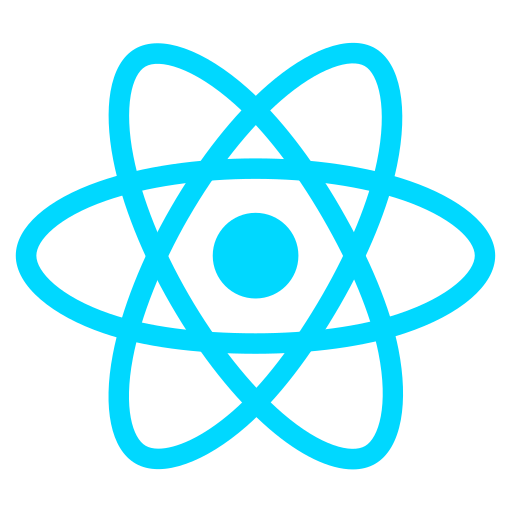
Empowering Dementia Care with Innovation
Welcome to DementiaGuard, your trusted companion in dementia care and support. Designed to enhance the quality of life for dementia patients and their caregivers, our app offers cutting-edge tools and compassionate assistance. From early dementia prediction using MRI brain imaging and a voice-activated therapy assistant to cognitive exercises and geo-fencing for added safety, DementiaGuard combines science and technology to deliver a personalized care experience. Start your journey with DementiaGuard and discover a world where advanced care meets compassionate support.
Introduction
DementiaGuard is a smart solution for supporting dementia patients, developed by a four-member research team. Our app is implemented to enhance cognitive health and improve the quality of life for individuals affected by Alzheimer's Disease by integrating personalized Cognitive Health Improvement Activities, an innovative Voice Enabled Therapy Assistant, Geo-Location Fencing with security measurements, and advanced MRI analysis for medical personals.
Cognitive Enhancement
Personalized cognitive exercises designed to stimulate brain function and slow cognitive decline in dementia patients.
Safety & Security
Advanced geo-fencing technology to ensure patient safety with real-time monitoring and alerts for caregivers.
Compassionate Care
AI-driven voice therapy assistant providing emotional support and reminiscence therapy to improve quality of life.
Research Gaps
Our research identified several critical gaps in existing dementia care solutions that DementiaGuard aims to address through innovative technology.
Lack of Interactive Therapy
Current solutions lack personalized, interactive therapy options for dementia patients.
Inadequate Comprehensive Monitoring
Existing monitoring systems fail to provide comprehensive indoor and outdoor tracking for patient safety.
Non-Personalized Cognitive Exercises
Generic cognitive exercises that don't adapt to individual patient needs and progression.
Fragmented MRI Analysis and Treatment Planning
Lack of integrated systems for MRI analysis and personalized treatment planning for medical professionals.
Research Problems & Solutions
Our research investigates key challenges in Alzheimer’s Disease management and presents innovative technological solutions to enhance patient care and support for caregivers.
Research Problems
Alzheimer’s Disease (AD) management presents numerous challenges across therapy, diagnosis, cognitive support, and safety. Non-pharmacological therapies such as Reminiscence Therapy (RT) are proven to enhance emotional well-being, but access to trained professionals is often limited, placing an additional burden on already overwhelmed caregivers. Diagnostic methods rely heavily on subjective cognitive assessments, which are unreliable in detecting early stages of AD, while deep learning-based MRI analysis struggles with data scarcity and generalizability. Cognitive training exercises lack personalization, making them less effective in addressing individual needs of patients. Furthermore, patient safety remains a significant concern due to the tendency of AD patients to wander, and existing monitoring systems lack accurate indoor tracking and timely alert mechanisms. These fragmented approaches fail to provide a unified, effective care solution for AD patients and their caregivers.
Key Issues
- Inconsistent access to therapy
- Subjective and unreliable diagnosis
- Generic cognitive training tools
- Inadequate patient safety tracking
Consequences
- Emotional and cognitive deterioration
- Misdiagnosis and delayed intervention
- Ineffective cognitive stimulation
- Increased risk of patient harm
Research Objectives
Our research aims to address the challenges faced by dementia patients and their caregivers through innovative technological solutions. The following objectives guide our work:
Develop an AI-driven voice-enabled therapy assistant to provide personalized reminiscence therapy and emotional support for dementia patients
Create a comprehensive cognitive health improvement system with adaptive exercises to slow cognitive decline
Implement a geo-location fencing system for enhanced patient safety using IoT technologies
Design an advanced MRI analysis system for early detection and personalized treatment planning
Integrate all components into a unified platform accessible to patients, caregivers, and medical professionals
Methodology
This research aims to provide a smart solution by integrating a web and mobile platform tailored to the needs of doctors, patients, and caregivers. The system provides an interactive web interface for doctors, enabling real-time patient monitoring, MRI report analysis, and generating personalized treatment plans. Additionally, the mobile application supports patients and caregivers through AI-based therapy assistance, cognitive health improvement activities, and geolocation fencing for enhanced safety. The infrastructure is managed using services offered by Firebase with Google Cloud Platform (GCP) for storage, artifact registry, hosting, databases and etc. ensuring scalability, security, and seamless data management. Using the tools available, caregivers can be involved in monitoring and supporting patients' progress, fostering a team approach to care.
Voice-Enabled Therapy Assistant
Our AI-driven Voice-Enabled Therapy Assistant provides personalized reminiscence therapy. Caregivers feed patient data, such as life stories and photos, which we use to generate tailored therapy questions. Using natural language processing, the assistant engages patients in adaptive conversations, tracks progress, and generates session reports to monitor cognitive health.
Key Features
- Natural language processing
- Personalized conversation topics
- Adaptive difficulty levels
- Progress tracking and reporting
Benefits
- Enhanced emotional well-being
- Improved memory recall
- Reduced feelings of isolation
- Cognitive stimulation
Technologies Used
Our research leverages a diverse stack of cutting-edge technologies to deliver a comprehensive solution for dementia care.










Milestones
Track our research project's progress through key milestones and deliverables.
Project Proposal
A Project Proposal is presented to potential sponsors or clients to receive funding or get your project approved.
Progress Presentation I
Progress Presentation I reviews the 50% completion status of the project. This reveals any gaps or inconsistencies in the design/requirements.
Research Paper
Describes what you contribute to existing knowledge, giving due recognition to all work that you referred in making new knowledge.
Progress Presentation II
Progress Presentation II reviews the 90% completion status demonstration of the project. Along with a Poster presentation which describes the project as a whole.
Website Assessment
The Website helps to promote our research project and reveals all details related to the project.
Final Report
Final Report evaluates the completed project done throughout the year. Marks mentioned below includes marks for individual & group reports and also Final report.
Final Presentation & Viva
Viva is held individually to assess each member's contribution to the project.
Logbook
Status of the project is validated through the Logbook. This also includes, Status documents 1 & 2.
Documents
Access our research documents, proposals, and reports.
Submitted On 2024/07/01
Submitted On 2024/07/01
Submitted On 2024/07/01
Submitted On 2024/07/01
Submitted On 2024/07/01
Awaiting Submission
Awaiting Submission
Awaiting Submission
Awaiting Submission
Awaiting Submission
Awaiting Submission
Awaiting Submission
Presentations
Access our research presentations and slides.
Submitted On 2024/07/01
Awaiting Submission
Awaiting Submission
Awaiting Submission
About Us
Meet our dedicated team of researchers and supervisors working on the DementiaGuard project.
Contact Us
We'd love to hear from you! Please fill out the form below.